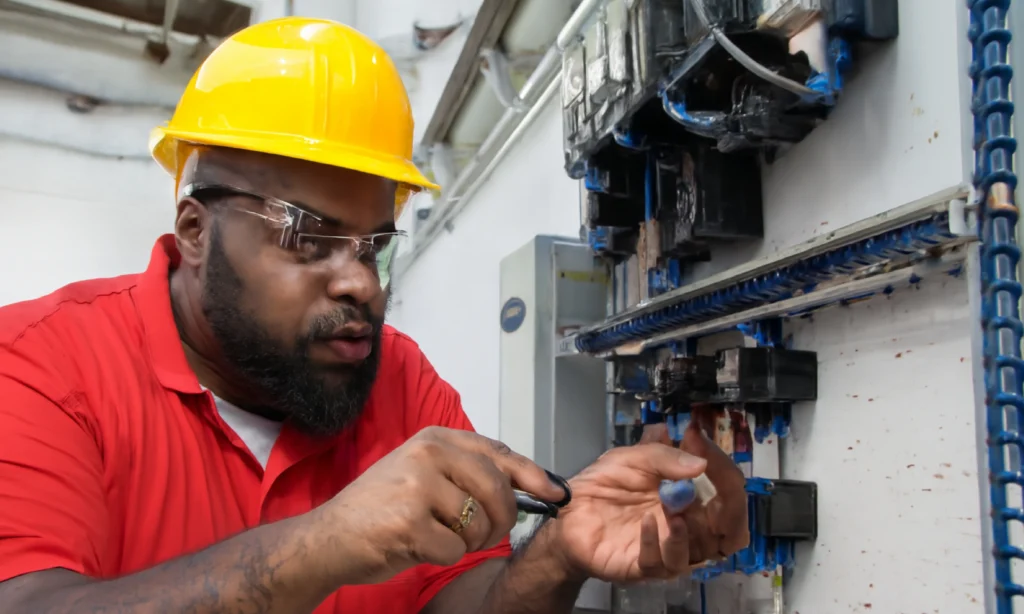Italy is very famous for its art, culture, and emerging technology industries, which have sustained a continuous need for skilled workers like electricians. For expatriates looking for adventure in their profession, working as an electrician is a superb option. With the country’s evolving infrastructure, expansion of smart home installations, and renewable energy projects, the country is ready to harness the potential of electricians. This guide outlines the electrical technician opportunities for expats, including the current demand, job-specific skills and qualifications needed, salary prospects, and application recommendations for 2025.
The Growing Demand for Electricians in Italy
Italy’s skilled electricians are in high demand, and for good reason. One of the factors surging this demand is the installation of solar panels, wind turbines, and other energy-efficient systems which comes from the new policy embracing green energy. Projects designed around sustainable construction and the retrofitting of older buildings to conform to new energy efficiency standards are also aiding this demand.
Smart home appliances are becoming popular among Italian homeowners. This adoption requires extensive electrical work ranging from the installation of lights, advanced automated security systems, as well as energy management tools, all needing skilled professionals.
To enhance tourist experiences, Italy is upgrading hotels, restaurants, and public spaces which creates new jobs for experienced electricians. This amplifies the need for skilled professionals to tackle these electrification projects.
The increased attention to hiring expats offers many chances for professionals to work in Italy and earn a good salary.
Opportunities Available for Expats
In 2025, expatriates will have multiple options in Italy’s electrician employment sector. Below are the most common roles available for them with respect to their skill set and specialization:
1. Residential Electricians
Private electricians work in homes and apartments, maintaining and fixing electrical systems. Updating older buildings and integrating smart home systems are part of the job, as is wiring new construction.
2. Commercial Electricians
These experts focus on construction projects llke hotels, shopping malls and office buildings. Their responsibilities could involve complex upgrading electrical work in a facility.
3. Industrial Electricians
Industrial electricians concentrate on the maintenance and installation of electrical systems within manufacturing plants and factories. Such positions involve the use of industrial equipment, robotic systems, and automation technologies.
4. Solar Energy Technicians
Electricians specializing in renewable energy technologies will have their hands full with the installation and servicing of solar panels, inverters, and batteries. The position is a burgeoning opportunity because of Italy’s accelerating investments in renewable energy programs.
5. Maintenance Electricians
These jobs include routine checks and preventative measures to maintain safety and efficiency within the electrical systems. Maintenance electricians are often employed under contracts of considerable lengths.
6. Specialist Roles in Lighting Design
Electricians with a creative streak can consider designing artistic lighting installations which are popular in Italy’s upscale retail venues.
Required Skills and Qualifications
To work as an electrician in Italy, expats must have some certificates and here is what employers typically look for:
Essential Skills
- Familiarity and competence with reading publishing wiring diagrams in blueprint form alongside technical books including manuals.
- Possession of expert knowledge in wiring systems, electrical equipment, tools, as well as safety measures.
- Possession of problem-solving skills to diagnose issues, as well as implement solutions.
- Capabilities to work independently as well as alongside highly dynamic project teams.
- Familiarity with modern technology, including smart home systems, as well as renewable energy equipment.
Certifications and Qualifications
Like most Italian employers, certifications that demonstrate your professional skills are highly valued. Requirements are role specific but often entail:
- Vocational school diplomas or certifictates in electrical engineering
- EUREC Diploma: This is especially important for electricians who work in the field of renewable energies.
- Possessing foreign qualifications may render someone in need of conversion or recognition by Italian authorities in terms of legal practice which leads to Italian standards compliance.
- Certification of safety, like working at industrial sites, needs OSHA-equivalents and other such safety certifications.
For foreigners living in Italy, valid documents like a visa or work permit must be obtained. Non-EU citizens applying for italian consulates need to go through their employers’ sponsorship programs.
Being conversable in the Italian language offers an additional benefit. Although many roles within international companies don’t require fluency in Italian, knowing how to speak at least basic conversational skills can be helpful when it comes to interacting on construction sites.
Salary Expectations for Electricians in Italy
In Italy, the earning potential is different for everyone due to the division of experience, job type and location. Below is a summary of what expatriates should expect until 2025:
- Electricians in Training: €1,400–€1,800 monthly
- Seasoned Workers: €2,000–€2,800 monthly
- Specialized Positions (Including solar energy technicians): €2,500–€3,500 monthly
- Supervisors or Project Managers: €3,500–€4,500 monthly
As always, the pay is usually better in the northern parts of the country like Lombardy and Veneto, which are economic centers, while the southern parts tend to have a bit lower pay. Despite this, many companies offer benefits such as subsidized housing, meal vouchers and overtime pay which, on top of your base salary, can boost your earnings considerably.
Guidelines For Applying for Electrician Jobs in Italy
Here are some steps you could take to advance your career as an electrician in Italy:
1. Research the Industry
Understand different electrical contracting businesses throughout Italy. For example, the industrial centers in Northern Italy mainframe Automations and factories. The southern parts might require electricians for residential tourism-related services.
2. Customize Your CV
Consider including a translated version in Italian, as well as tailoring your CV highlighting relevant certifications, years of experience, plus skills that relate to the position.
3. Obtain Necessary Permits
Non-EU applicants mostly need a visa along side a work permit. Try contacting Italian consulate offices or potential employers for easier sponsoring options that could simplify this process.
4. Submit Applications As Soon As Possible
Many italian employers start hiring much earlier for large scale projects. By applying earlier, you are more likely to be shortlisted.
5. It is Advised To Frequently Visit Job Portals
With the use of portals, one can find jobs in Italy likeInfoJobs, Adecco Italia and others. There are also recruitment agencies in Italy that solely deal with the expatriation of technical staff.
6. Create Professional Profiles
Use LinkedIn to search for Italian construction firms, engineering consultants, and join other relevant industry groups.
7. Get Additional Skills
Think about acquiring certifications on advanced technologies such as solar panels or energy-efficient systems since they are emerging trends in Italy’s electrical market.
Why Choose Italy for Electrical Work?
Becoming an electrician in Italy has its advantages which come from advancing in your career or simply enjoying life in a beautiful country steeped in culture.
- Demand and Stability: The rapidly growing energy field offers positions in the electrical sector which ensures employment security for specialized workers.
- Global Networking: Employment in Italy affirms engagement in global initiatives which augments one’s value in the job market internationally.
- Cultural Experience: Electricians enjoy a rich work-life balance that includes world-renowned tourist sites and Italian restaurants.
- Sustainability Opportunities: Active ecological approaches create more entrepreneurial positions filled with creative and ecological thinking.
- Living in the EU: Acquiring working experience in one of the EU countries increases professional opportunities in other European countries.
Final Thoughts
An expat seeking electrician jobs in Italy will find them to be extraordinary for professional growth, cultural integration, and economic well-being. Skilled electricians are in demand in numerous industries, particularly with the expansion of renewable energy initiatives, intelligent home system implementations, and construction growth.
If this is the right profession for you, make sure you take the necessary actions to make transitioning into the Italian labor market easier. Polish your resume, gather the required paperwork, and begin checking out job portals. The Italian electrical sector is looking forward to welcoming you in 2025!



